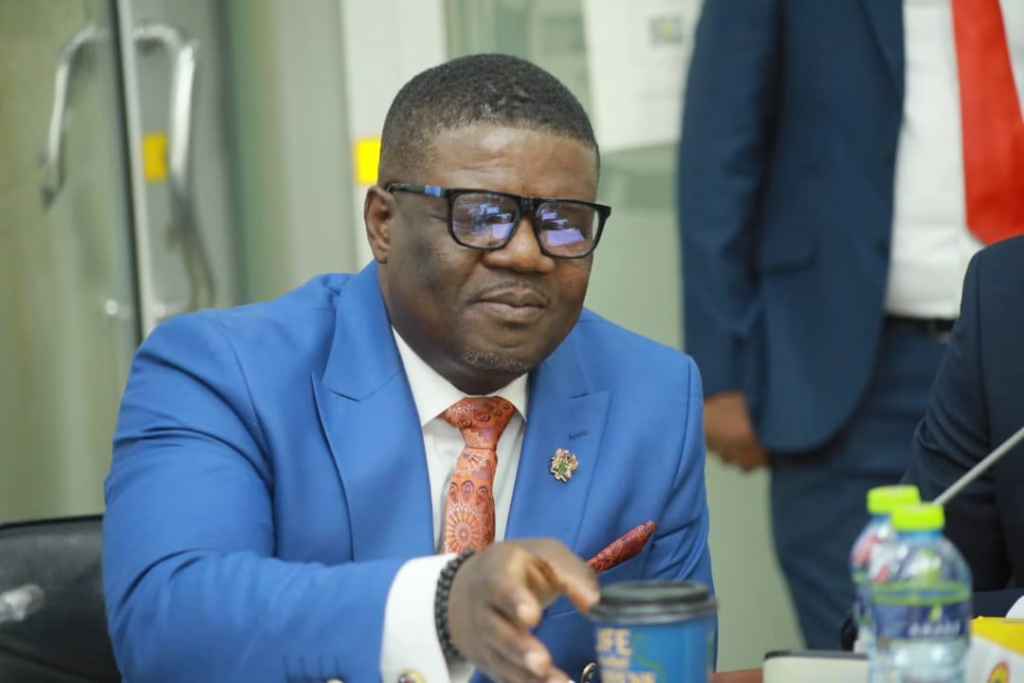Majority Chief Whip Takes Responsibility for Parliamentary Chaos
Introduction: Acknowledging Responsibility for Parliamentary Chaos
The Majority Chief Whip, Rockson-Nelson Dafeamekpor, has taken responsibility for the chaos that erupted during parliamentary proceedings on Thursday, January 30, 2025. Appearing before an ad hoc committee on Monday, February 10, 2025, Dafeamekpor expressed regret over the incident, acknowledging the damage it caused to Parliament’s image.
This article delves into the details of the chaos, Dafeamekpor’s testimony, and the broader implications for parliamentary conduct.
What Happened on January 30, 2025?
The chaos unfolded when the Minority resisted the vetting of MPs Okudzeto Ablakwa and Kwabena Mintah Akandoh. The standoff escalated into a physical clash, destroying tables and microphones.
Following the incident, four MPs, including Dafeamekpor, were suspended. The Minority subsequently walked out, leaving the Majority to proceed with the vetting of Ablakwa and other nominees on January 31.
Dafeamekpor’s Testimony: Accepting Responsibility
During his appearance before the committee, Dafeamekpor expressed regret and accepted his punishment in good faith.
“Well, not at all, I take responsibility. When my punishment came, I took it in good faith,” he stated. He acknowledged that while some disagreed with his suspension, he understood the need to hold leaders accountable for such incidents.
Root Cause of the Chaos: Lack of Consensus
Dafeamekpor attributed the chaos to a lack of consensus and the Minority Chief Whip Frank Annoh-Dompreh’s insistence on his own approach.
“If my counterpart [Annoh-Dompreh] was not insistent on his modus operandi, we wouldn’t have experienced that. Once they decided to destroy tables and raise tables, what could I have done?” he remarked.
He emphasized the need for streamlined processes and better consensus-building to prevent future incidents.
For more on Ghana’s parliamentary proceedings, visit Parliament of Ghana.
The Aftermath: Suspensions and Vetings
The clash led to the suspension of four MPs and a walkout by the Minority. Despite the chaos, the Majority proceeded with the vetting of Ablakwa and other nominees on January 31.
Notably, the clash occurred after Minority Leader Alexander Afenyo-Markin had already subjected Ablakwa to extensive questioning, highlighting the tensions within the House.
Lessons for Parliamentary Conduct
The incident underscores the importance of maintaining decorum and fostering collaboration in Parliament. Key takeaways include:
- Consensus-Building: Prioritizing dialogue and compromise to avoid conflicts.
- Accountability: Holding leaders responsible for maintaining order during proceedings.
- Streamlined Processes: Implementing clear protocols to address disagreements.
For insights on parliamentary best practices, explore Inter-Parliamentary Union.
Strengthening Parliamentary Integrity
The January 30 chaos serves as a reminder of the need for respectful and orderly conduct in Parliament. As citizens, we must advocate for reforms that promote collaboration and accountability among our leaders.
What steps do you think Parliament should take to prevent such incidents in the future? Share your thoughts in the comments below or join the conversation on social media using the hashtag #GhanaParliament.



